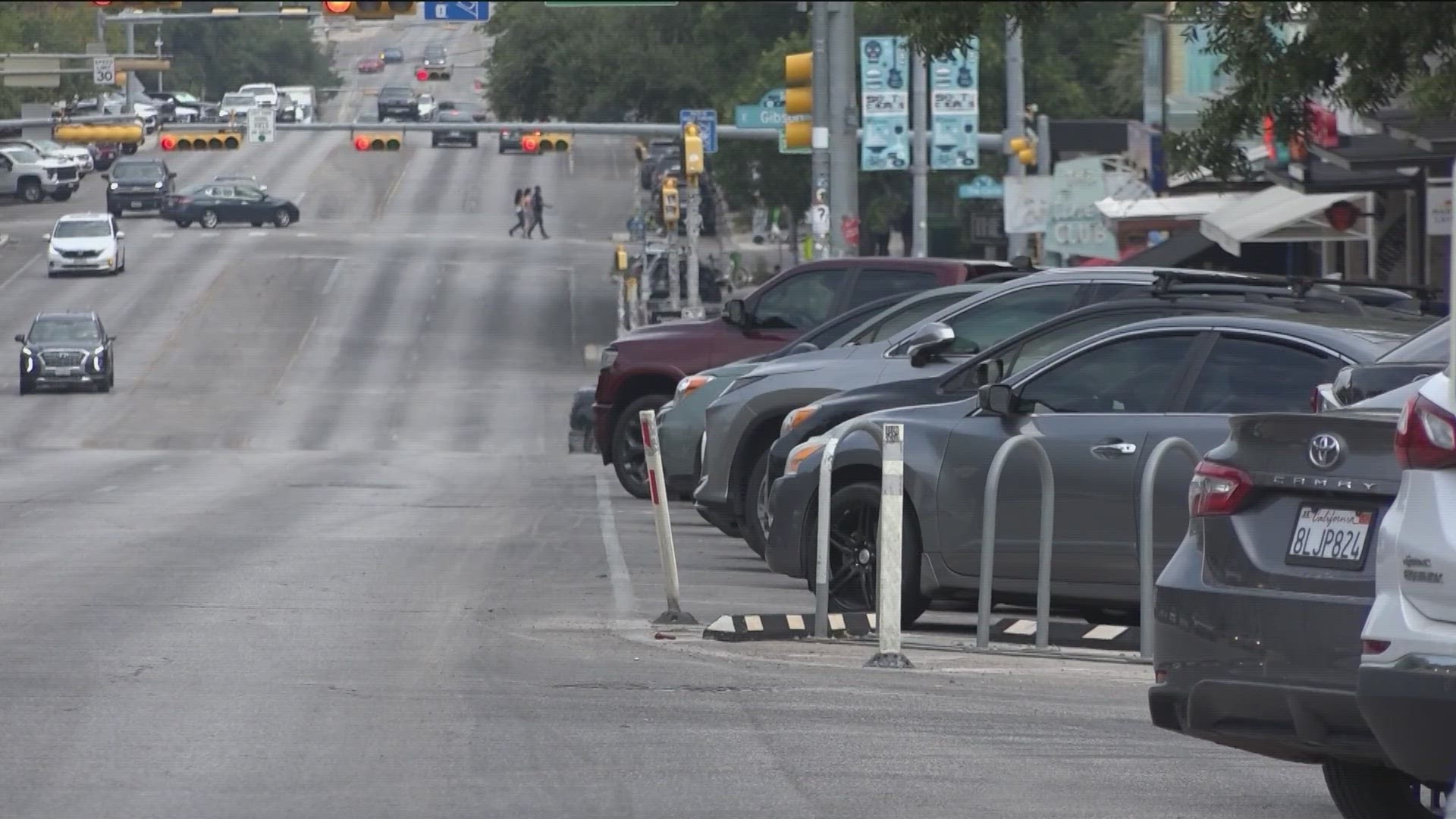AUSTIN, Texas — City of Austin leaders have made another move in an attempt to shift the city into becoming less car-dependent by getting rid of parking requirements for new developments.
Councilmember Zo Qadri (District 9) introduced the resolution in May, noting that developers will have the power to decide how much parking comes with their new builds.
"It helps reduce sprawl, cleaner air, water and more housing and more affordability," Qadri said.
The item was approved in an 8-2 vote, with Councilmembers Mackenzie Kelly (District 6) and Alison Alter (District 10) voting against the measure.
"I'm concerned that there will be unintended consequences and scenarios that create real problems for navigating areas where residential uses about commercial uses, particularly in areas that have older, narrow streets," Alter said.
Kelly echoed that sentiment.
With City leaders working to boost public transportation, concerns are being raised as to whether the city's infrastructure can adapt to the change of having less parking.
Qadri pointed to various projects in the works, such as Project Connect.
"Our voters have overwhelmingly approved major investments in transit and sidewalks and trails and bike lanes," Qadri said. "I think we need to continue to make sure we do good on those investments, and until that is done [I] fully expect developers to continue to provide plenty of parking."
Councilmember Chito Vela (District 4) added that the city could start seeing less parking once Austin's light-rail system gets underway and more mixed-use buildings are in place.
"There's going to be some adjustments as we shift from a largely suburban city to a more urban city. There's going to be some growing pains. There's going to be some adjustments that have to happen," Vela said.
However, some local developers are not convinced.
Kurt Goll, president of JCI Residential with Journeyman Group, explained that they face parking challenges even with the city required minimums.
“We have an internal 1.75 per unit ratio we impose on ourselves. I feel developers will not provide adequate parking unless required to do so," Goll said. "I think COA should consider shared parking agreements between residential and office/retail uses that allow parking requirements to be shared based on usage time.”
Vela said there are several tools the city can use to deal with parking shortages, such as sharing parking with businesses.
Ultimately, the goal is to create a city that is less dependent on vehicles.
"If we build those walkable, livable communities, that will go a long way, long-term toward solving our transportation infrastructure problems. And again, it's going to be a tough switch," Vela said.
Under new rules, the City is ensuring that there will still be designated parking spaces for people with disabilities.
Boomtown is KVUE's series covering the explosive growth in Central Texas. For more Boomtown stories, head to KVUE.com/Boomtown.

